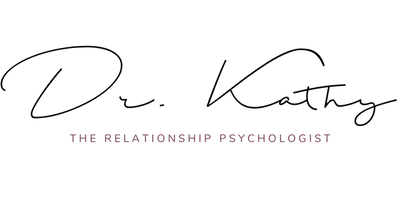Infidelity shatters the foundation of a relationship, leaving both partners in a whirlwind of emotions and uncertainty. Whether you're the betrayed partner or the one who strayed, navigating the aftermath of an affair requires courage, compassion, and a willingness to confront toxic beliefs that can hinder the healing process. Let’s explore five toxic beliefs for each of you – the betrayed partner and the one who cheated – and discuss what to do instead.
If you are the betrayed partner, here are 5 toxic beliefs that will prevent, or slow down, healing from an affair:
- “I will never get over this.”
It's natural to feel overwhelmed by the pain and betrayal caused by infidelity, but believing that you'll never heal only prolongs your suffering. Instead, acknowledge your pain and allow yourself to grieve, and also recognize that healing is possible with time, effort, and support. In our recent research study, the vast majority of people who wanted to heal from an affair succeeded in healing; you can too!
- “My partner is a monster.”
Viewing your partner as a monster only perpetuates a cycle of resentment and bitterness. While their actions may have caused immense hurt, it's essential to see them as a flawed human being capable of growth and change. Seek to understand the underlying reasons for the affair and explore avenues for rebuilding trust and connection.
- “I should say or do anything I want to my partner who cheated.”
While it's understandable that you want to hurt your partner, responding with anger and hostility will only further damage the relationship. Practice pausing, being kind and compassionate in your communication. I recommend talking about your partner’s behavior and how this made you feel, rather than assassinating your partner’s character.
- “My partner needs to be strongly punished so they’ll never do this again.”
Punishment may seem appealing and justified, but true healing and reconciliation require a more constructive approach. While punishment may lead to short-term compliance, rewards and positive reinforcement foster intrinsic motivation, engagement, and lasting behavior change. And what we really want is lasting change, right?
- “Our relationship is ruined.”
Infidelity strains a relationship almost to the point of breaking, but declaring it ruined overlooks the potential for growth and renewal. I’d rather you see your relationship as injured and changed, but not ruined. Embrace the possibility of rebuilding your relationship stronger than before, recognizing that setbacks can pave the way for deeper understanding and intimacy.
If you are the partner who cheated, here are the 5 toxic beliefs that will prevent you from recovering after the affair:
- “It was actually my partner’s fault that I strayed.”
Blaming your partner for your behavior deflects responsibility and undermines the chance for genuine remorse and accountability. Take ownership of your actions and examine the underlying reasons for your betrayal without shifting blame onto your partner. If your partner did not get to have a say in your decision, then that decision is not their responsibility. They may have played a role in the relationship being strained, but ultimately, the decision to stray was yours.
- “My partner is overreacting; the affair was no big deal.”
Dismissing your partner's pain and minimizing the impact of your actions only deepens their hurt and erodes trust further. Research shows that an affair is second only to physical abuse in terms of harming a relationship. Affairs are a huge deal and deeply traumatic. Please acknowledge the gravity of the situation and validate your partner’s feelings, demonstrating empathy and a commitment to repairing the damage.
- “It was in the past, let’s just move on, no need to talk about it.”
Avoiding discussions about the affair may sound appealing, but avoiding the conversations guarantees that you will not heal from the affair. We must talk about the affair to heal from the affair. Embrace uncomfortable conversations as opportunities for healing and growth. Look for new ways to cope with the discomfort you feel, set time limits, and take breaks when you talk.
- “I don’t need to change or do anything differently.”
Assuming that you can simply move past the affair without addressing underlying issues sets the stage for future conflicts and betrayals. Take proactive steps to address personal challenges, learn more about attachment, coping, and communication. Actively participate in rebuilding trust and intimacy.
- “I’m a horrible person and we will never recover from this.”
Guilt and self-loathing can be powerful emotions after infidelity, allowing them to define your self-worth only perpetuates a cycle of despair. Instead, recognize that everyone makes mistakes and focus on taking positive steps toward growth, redemption, and reconciliation. Good people can make bad choices and have bad behavior; you are not a bad person because you did a bad thing. Commit yourself to learning from this and never repeating it.
Overcoming the toxic beliefs that arise in the aftermath of an affair is a crucial step toward healing and rebuilding trust in a relationship. By confronting these beliefs with honesty, empathy, and a willingness to change, both partners can chart a path toward genuine reconciliation, fostering a stronger and more resilient bond in the process. Remember, healing takes time, but with patience, understanding, and mutual commitment, it is indeed possible to emerge from the shadow of infidelity into a brighter, healthier relationship.
Dr. K's NEW Book on Infidelity Recovery
The Courage to Stay - How To Heal From an Affair & Save Your Marriage
More Affair Recovery Articles
What If My Partner Is Having An Affair With Co-Worker
How To Get Your Partner To Stop Talking To the Affair Partner
I Just Found Out My Partner Cheated, Now What?
Why Do People Have Affairs?
How Do I Tell Him That I Know He Cheated?
How To End an Affair - Sample Break Up Letter
All Healing from Infidelity Articles
See All Our Infidelity Articles
